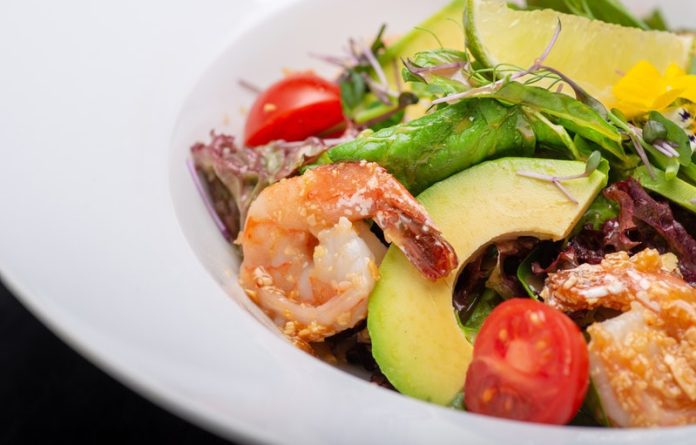
Scientists from Harvard and Hebrew SeniorLife found that eating a Mediterranean-style diet may prevent frailty.
Frailty is a common health problem in older people that carries an increased risk for poor health outcomes including falls, disability, hospitalization, and death.
People who are frail usually have three or more of five symptoms that often travel together.
These include unintentional weight loss (10 or more pounds within the past year), muscle loss and weakness, a feeling of fatigue, slow walking speed and low levels of physical activity.
The Mediterranean diet is a diet inspired by the eating habits of people who live near the Mediterranean Sea.
In the diet, people will eat mostly plant-based foods like fruits and vegetables, potatoes, whole-grains, beans, nuts, seeds and extra virgin olive oil. Meals are planned around these foods.
The diet also includes moderate amounts of lean poultry, fish, seafood, dairy and eggs.
The benefit of a Mediterranean-style diet in reducing frailty is not clear in older Americans.
The Mediterranean diet is full of antioxidants, which are substances that can prevent or slow damage to cells caused by free radicals, unstable molecules that the body produces as a reaction to environmental and other pressures.
Many experts suggest antioxidants protect us from premature aging, heart disease, cancer, and possibly depression and anxiety.
In the current study, researchers sought to test the associations of the Mediterranean diet and related antioxidants with the development and worsening of frailty symptoms in older people.
They tested more than 2000 adults from the Framingham Offspring Study.
These people had a Mediterranean-style dietary pattern score and data on antioxidant intakes (vitamin C, E, and total carotenoids). They also finished a frailty assessment.
The score is based on the recommended intakes of 13 food groups in the Mediterranean diet pyramid.
Each food group is scored from 0 to 10 depending on the degree of correspondence with recommendations.
Carotenoids are a class of more than 750 naturally occurring pigments synthesized by plants, algae, and photosynthetic bacteria.
These richly colored molecules are the sources of the yellow, orange, and red colors of many plants. Fruit and vegetables provide most of the 40 to 50 carotenoids found in the human diet.
The team found each 1-unit higher Mediterranean-style dietary pattern score (eating more foods in the Mediterranean diet) reduced frailty risk by 3%.
In addition, each 10-mg higher total carotenoid and vitamin E intake reduced the risk of frailty by 16% and 1%, respectively. No association with vitamin C was observed.
The team also found the associations in people aged younger than 60 years were stronger than those found in older people.
Based on the findings, the team concluded that eating a Mediterranean-style diet and higher total carotenoid intake are linked to frailty prevention over time, particularly in older people.
The research is published in The American Journal of Clinical Nutrition and was conducted by Courtney L Millar et al.
Copyright © 2022 Scientific Diet. All rights reserved.





